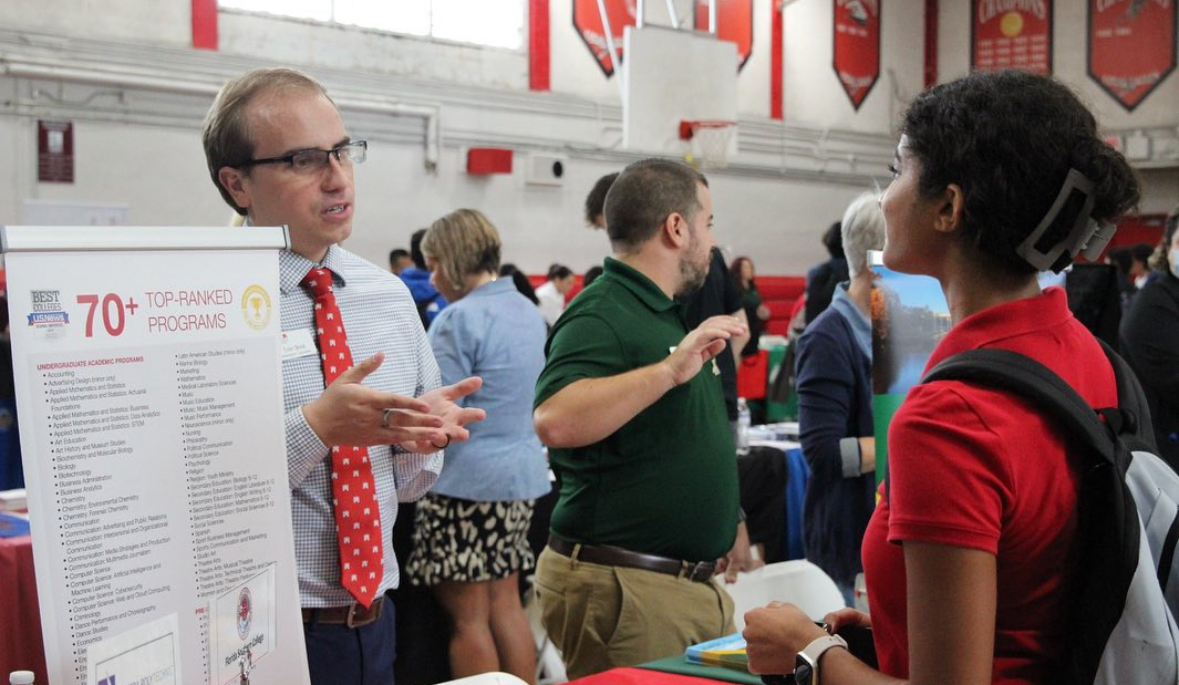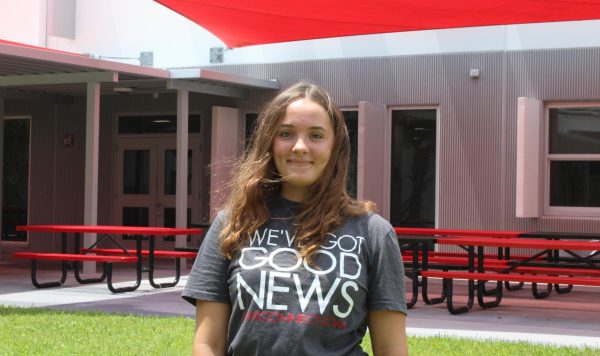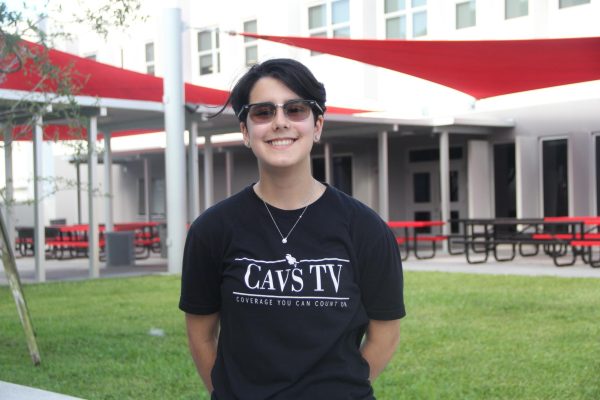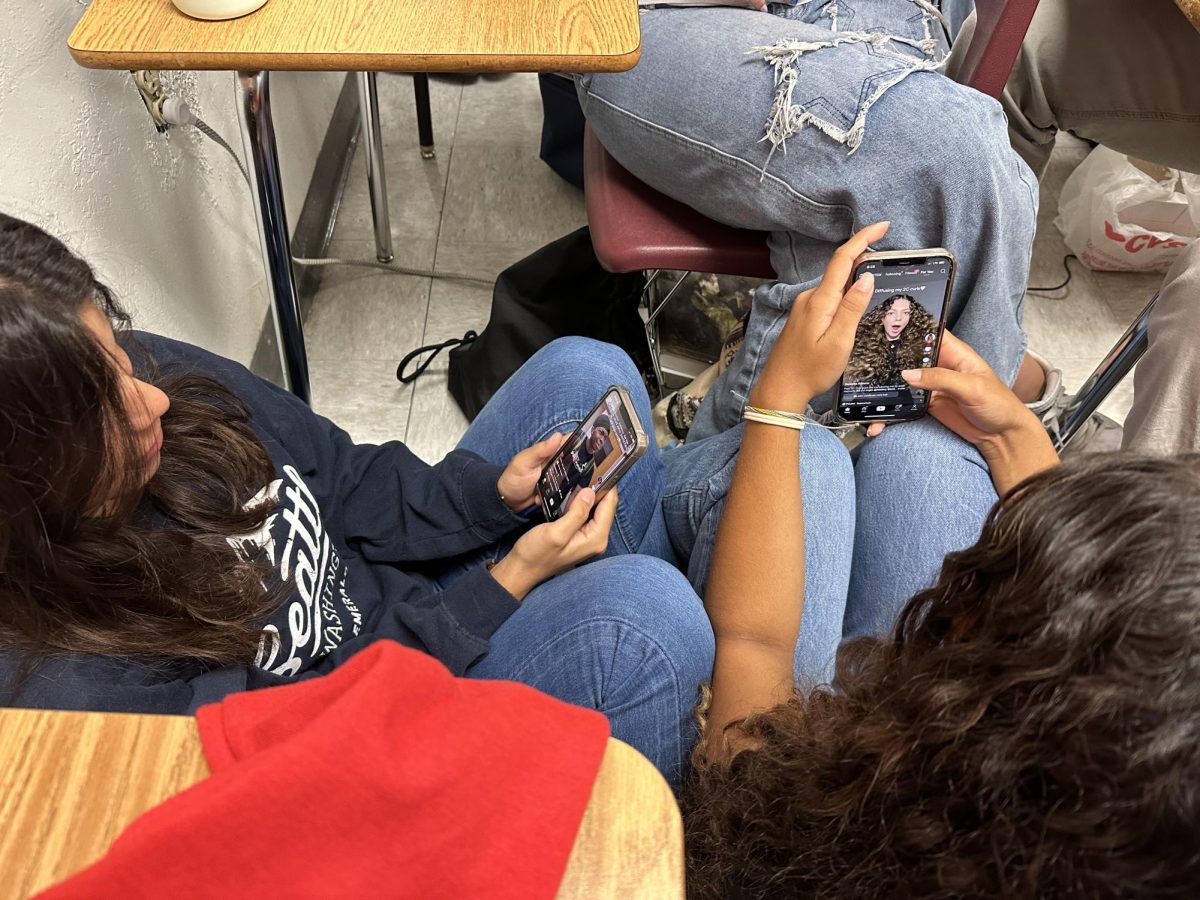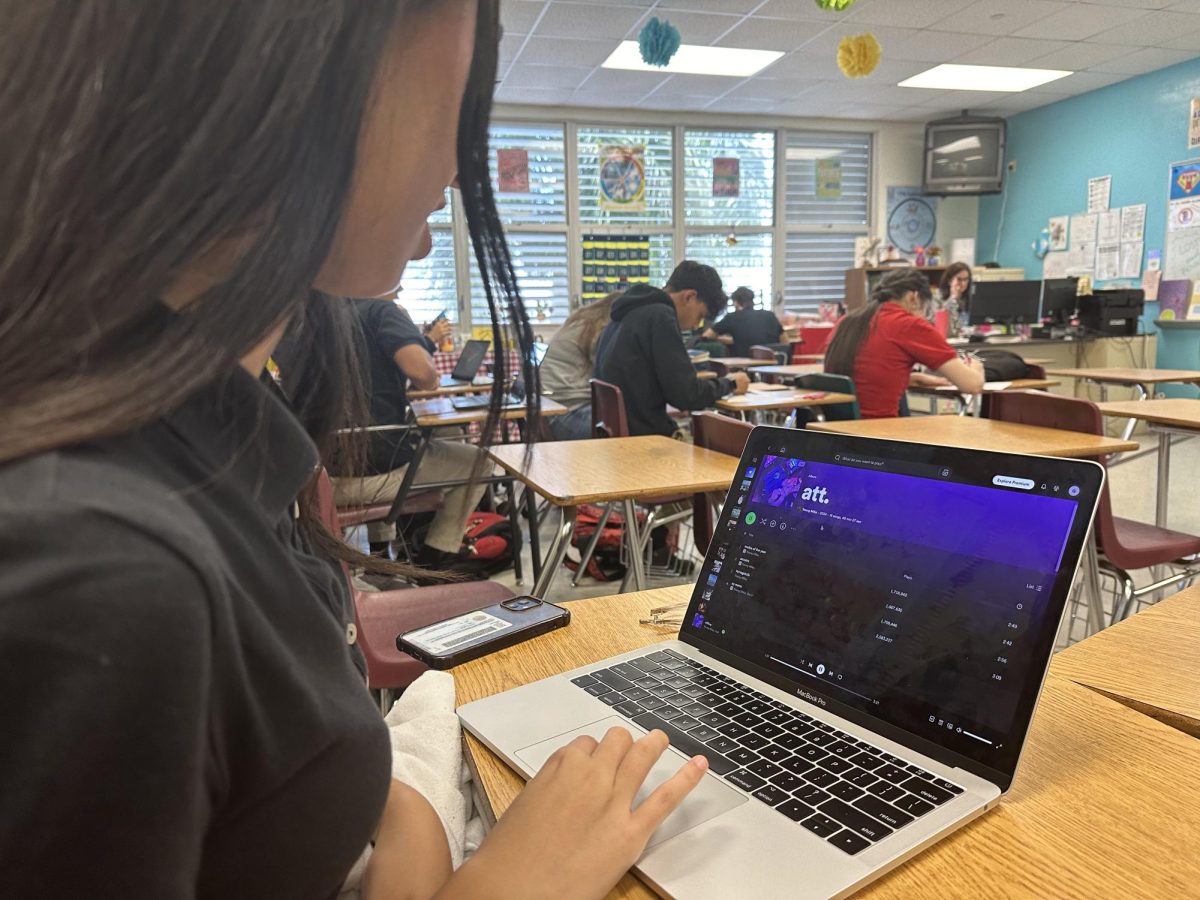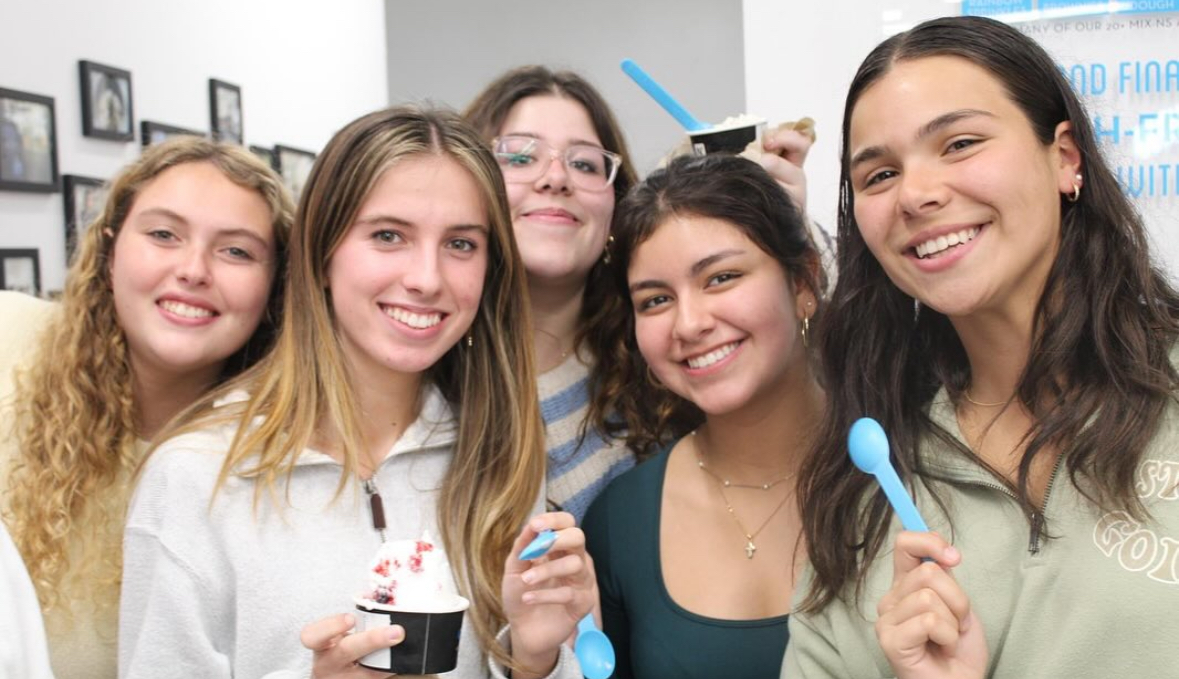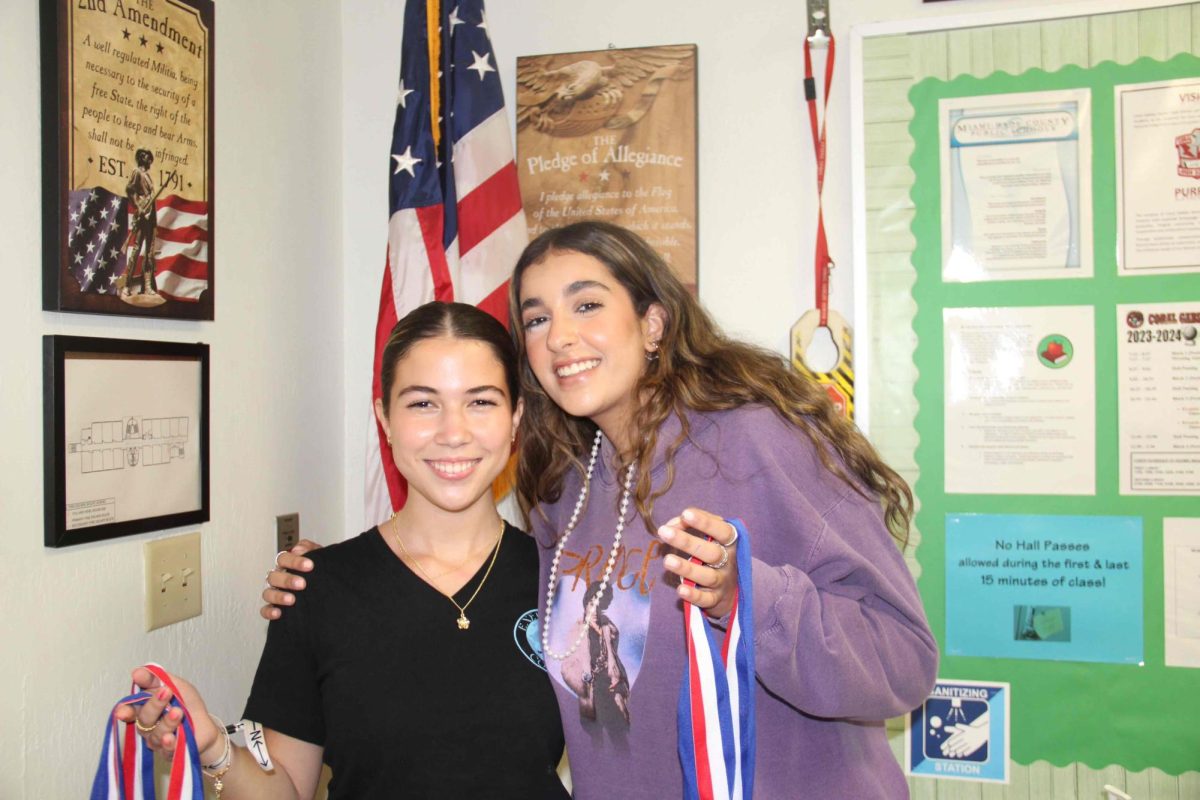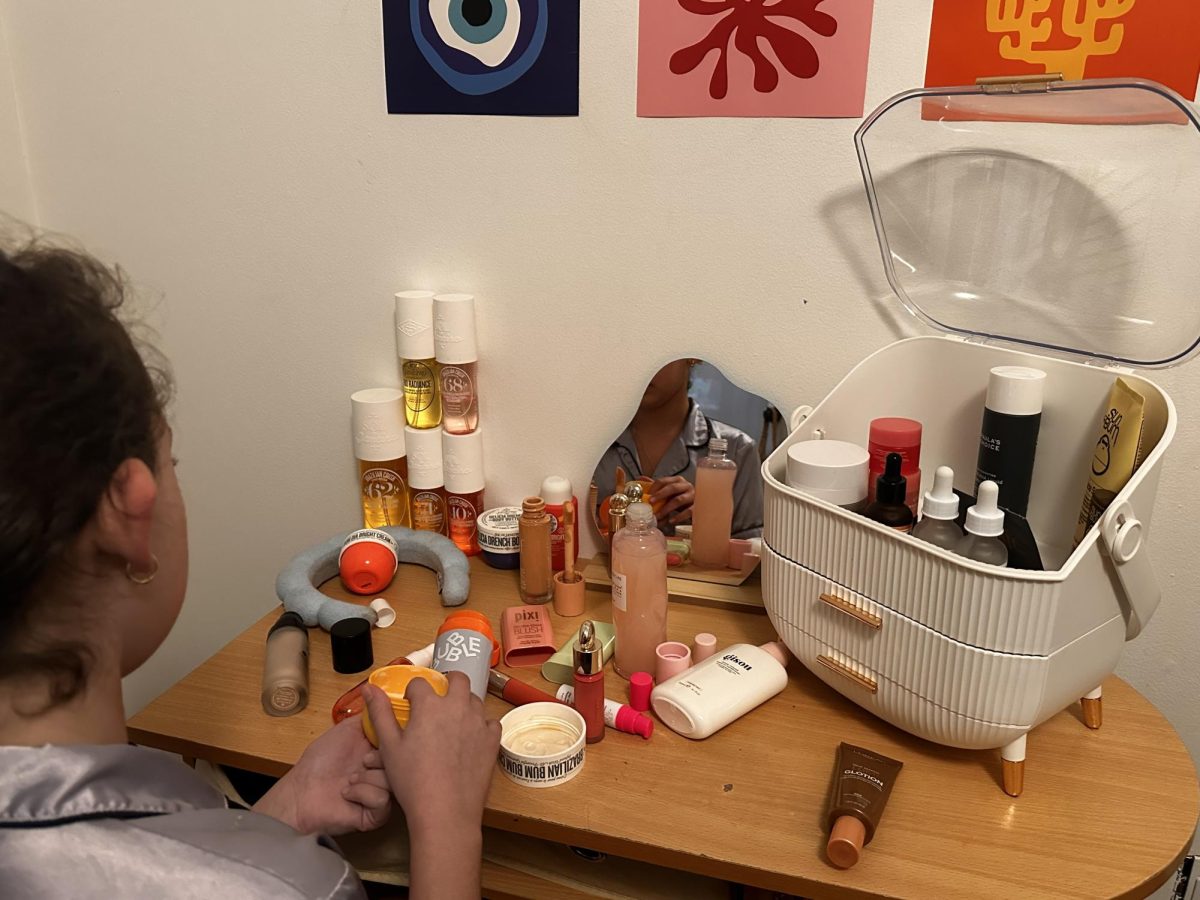Students begin applying to several universities during their junior year of high school. This is one of many reasons as to why junior year is considered one of the most busy and challenging years. As this is a first time experience for all the students applying, they work very closely with their counselors and College Assistance Program advisor, Ms. Sanz.
With an open door policy, Ms. Sanz invites kids to enter her classroom whenever they have questions. Her open Q&A, an online Google form that enables Cavaliers to submit their questions whenever necessary, is available to all students. This encourages an open-ended communication platform. Ms. Sanz is always willing to assist her pupils with everything related to college. During this process, Ms. Sanz has been their pillar of support, offering assistance with financial aid, waived fees, recommendation letters, and anything else that might be helpful to them as they embark on their worthwhile path as college candidates.
Juniors are given many avenues to become familiar with different colleges and how they operate and what they require. Students are able to form an idea of what schools should be on the top of their list thanks to in-state and out of state college tours, as well as one on one meetings with university representative s. These opportunities allow them to submit pristine applications.
Juniors have officially submitted their applications and now universities embark on the process of reviewing them These letters are received during a student’s senior year, and it is an extremely impactful moment during their high school careers. College acceptances are so personal to students because they are a direct reflection of the hard work that students have made throughout their years at high school.
“My first letter was from Florida State University, and I was originally deferred but then I got accepted. With several other acceptances into great schools and their honor programs, I have been able to ensure that I will be able to receive financial aid and my IB scholarship, because one of my biggest goals is that I am able to enter college debt-free and financially stable,” senior Santiago Giraldo said.
While students hope for the absolute best, the constant competition makes it very difficult to secure a position in a great school. Some students who apply during early decision or early action may be deferred. When a student is deferred, the college admission officers decide that there is not enough information to decide wether or not they will grant the student a full acceptance. This acts as a certain pause until regular decision admission cycle.
“I am a third generation legacy for University of Miami, so it is something I have hoped for for a long time. I was such a nervous wreck during the month that I waited for a response, and I was so surprised but relieved when I found out I made it in,” senior Charlee Trowbridge said.
Several members of the class of 2024 reported being deferred, waitlisted and even rejected from several Florida state schools. These universities rely heavily on statistics and test scores instead of writing abilities and extracurricular activities. Some of these students are extremely well rounded and over achieving in their academics and school involvement and were still turned down from their state schools.
“At first I applied early action to Florida State University and was immediately rejected because of my SAT scores. Florida schools tend to care a lot more about test scores compared to extracurricular involvement,” senior Adrian Guerrero said.
While rejections are of course, a great difficulty students must endure during this process, it makes it all feel worth it when they receive a fully granted acceptance.
“My goal is to study in Europe and I have already been accepted into three universities near the Netherlands, but now I have to make sure that I continue to work hard so that I can receive my IB diploma which is a necessity for those schools,” senior Adrian Guerrero said.
As offers begin to flood the minds of students, the time comes where they must narrow down and weigh their options. Considering finances, relevancy to what they wish to study, and several other meaningful factors, seniors must make the tough choice of where they choose to study for the following years.



